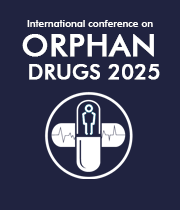Rare Genetic Diseases/Disorders
A genetic disorder is a medical condition caused by one or more gene mutations. A chromosomal abnormality or a mutation in a single gene (monogenic) or numerous genes (polygenic) might cause it. Because of the high number of genetic abnormalities, one out of every twenty-one people is affected with a "rare" genetic disorder (usually defined as affecting less than 1 in 2,000 people). The majority of genetic diseases are rare in and of themselves. The incidence of rare diseases is used to define them rather than unifying pathological or clinical criteria. Rare diseases cover a wide range of pathologies and pathogenesis mechanisms since they are distinguished by their low prevalence. Rare genetic diseases serve as a springboard for uncovering novel biology that has far-reaching implications for common human disorders. Changes in DNA are implicated in the cause of around 80% of rare disorders. Even if the symptoms aren't constantly evident, many diseases are present throughout a person's life.
- Rare Endocrine Genetic Diseases
- Paediatric Rare Genetic Disorders
- Rare Disease Genomics
- Detection of Rare Genetic Diseases

Sergey Suchkov
The Russian University of Medicine & Russian Academy of Natural Sciences, Russian Federation
Vladlen Slepak
University of Miami, United States
Harsha Rajasimha
Jeeva Clinical Trials, Inc, United States
Vladlen Slepak
University of Miami, United States
Harsha Rajasimha
Jeeva Clinical Trials, Inc, United States
Sergey Suchkov
The Russian University of Medicine & Russian Academy of Natural Sciences, Russian Federation


Title : Emerging solutions for inclusive orphan drug clinical trials management
Harsha Rajasimha, Jeeva Clinical Trials, Inc, United States
Title : Ectopically expressed olfactory receptors as an untapped family of drug targets. Discovery of agonists and antagonists of OR51E1, an understudied G protein-coupled receptor
Vladlen Slepak, University of Miami, United States
Title : Personalized and Precision Medicine (PPM) as a unique healthcare model to secure the human healthcare and biosafety among childhood
Sergey Suchkov, The Russian University of Medicine & Russian Academy of Natural Sciences, Russian Federation
Title : Orphan and rare disease emerging as a global public health priority through the view of personalized and precision medicine: How to use the latter to revolutionize pediatric services
Sergey Suchkov, The Russian University of Medicine & Russian Academy of Natural Sciences, Russian Federation
Title : Personalized and Precision Medicine (PPM) though the view of reproductive healthcare, pediatric services and natural family planning: an option for clinicians and caregivers realize the potential of genomics-informed care to secure the individualized human biosafety
Sergey Suchkov, The Russian University of Medicine & Russian Academy of Natural Sciences, Russian Federation
Title : Democratizing ASO drug discovery at La Jolla Labs
Melissa Keenan, La Jolla Labs, United States